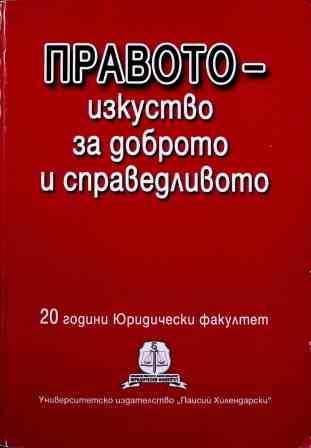Mutual Recognition of Orders to Freeze and Confiscate Criminal Assets in the European Union
Mutual Recognition of Orders to Freeze and Confiscate Criminal Assets in the European Union
Author(s): Todor Kolarov
Subject(s): Law, Constitution, Jurisprudence, Criminal Law, International Law, EU-Legislation
Published by: Пловдивски университет »Паисий Хилендарски«
Keywords: transnational organized crime; EU; illegally gained assets; EU standards; legal framework
Summary/Abstract: From the beginning of the 90-ies of the 20-th century transnational organized crime is a hot topic in the public debate, political and scientific circles in EU Member States, as European integration, along with its numerous positive changes, provided opportunity for organized crime to move freely and transfer its illegally gained assets much easier. Part of this debate is what the most effective mechanism to successfully curb organized crime is. In the contemporary international theory and practice it is established that confiscation of illegally gained assets is a key instrument in the anti-organized crime toolbox. Below I present international and EU level initiatives and policy/legislative actions to promote mutual recognition of the freezing and confiscation of criminal assets, focusing in particular on the Framework Decision 2003/577/JHA on the execution in the European Union of orders freezing property or evidence and Framework Decision 2006/783/JHA on the application of the principle of mutual recognition to confiscation orders, as amended by Framework Decision 2009/299/JHA amending Framework Decisions 2002/584/JHA, 2005/214/JHA, 2006/783/JHA, 2008/909/JHA and 2008/947/JHA, thereby enhancing the procedural rights of persons and fostering the application of the principle of mutual recognition to decisions rendered in the absence of the person concerned at the trial.
Book: Правото - изкуство за доброто и справедливото. 20 години Юридически факултет
- Page Range: 660-667
- Page Count: 8
- Publication Year: 2013
- Language: English
- Content File-PDF

